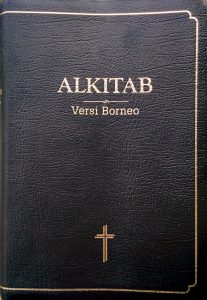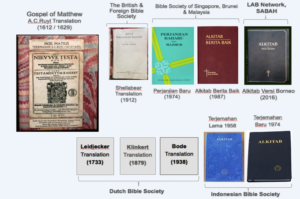A group of Christian leaders and professionals call upon all Malaysians to dialogue on how to work together to build a shared nation.
A CHRISTIAN SOCIAL VISION FOR MALAYSIA
I. PREAMBLE
Malaysia was formed as a multi-racial and multi-religious nation with a constitutional democracy which grants equality and religious liberty to all citizens under the law. However, recent social-political developments have caused deep concerns that the rights enshrined in the Federal Constitution are being undermined by racial and religious extremism resulting in political marginalization of minority groups, increasing authoritarianism in government and society leading to the restriction of freedom of speech, assembly and association of citizens as well as encroachment by religious authorities on the fundamental liberties of all citizens.
Many individuals and groups have expressed similar concerns. As Christians, we are mindful of the call from the Holy Bible to be peacemakers. “Blessed are the peacemakers, for they shall be called sons of God” (Matthew 5:9). As such, we, members of Kairos Dialogue Network would like to share our Christian social vision and call upon fellow-Malaysians of good will to come together for rational discourse and open dialogue. Our hope is that with commitment, we will succeed in building consensus, regardless of our colour, creed or confession and work together to build a harmonious, peaceful and progressive society.
II. OUR CHRISTIAN CONVICTIONS
A. OUR AFFIRMATION
To read the full statement go to:
Kairos Dialogue Network
— Website http://kairosdialoguenetwork.org/
— Facebook Page https://www.facebook.com/kairosdialoguenetwork/
— Twitter https://twitter.com/kairosdialogue
Added on 14 Oct 2022.
The link to the main website appears to be broken. As such, the full statement is now given below:
A CHRISTIAN SOCIAL VISION FOR MALAYSIA
I. PREAMBLE
Malaysia was formed as a multi-racial and multi-religious nation with a constitutional democracy which grants equality and religious liberty to all citizens under the law. However, recent social-political developments have caused deep concerns that the rights enshrined in the Federal Constitution are being undermined by racial and religious extremism resulting in political marginalization of minority groups, increasing authoritarianism in government and society leading to the restriction of freedom of speech, assembly and association of citizens as well as encroachment by religious authorities on the fundamental liberties of all citizens.
Many individuals and groups have expressed similar concerns. As Christians, we are mindful of the call from the Holy Bible to be peacemakers. “Blessed are the peacemakers, for they shall be called sons of God” (Matthew 5:9). As such, we, members of Kairos Dialogue Network would like to share our Christian social vision and call upon fellow-Malaysians of good will to come together for rational discourse and open dialogue. Our hope is that with commitment, we will succeed in building consensus, regardless of our colour, creed or confession and work together to build a harmonious, peaceful and progressive society.
II. OUR CHRISTIAN CONVICTIONS
A. OUR AFFIRMATION
God through His revelation in the Holy Bible, provides normative and sufficient guidelines for Christians to engage responsibly in public life.
The government is entrusted by God to exercise authority with checks and balance of power. Its duty is to establish justice, peace and freedom, and to promote human welfare. Public officials must serve all citizens, regardless of race, religion or social standing, and without fear or favour.
Every person is created in the image of God and therefore possesses inherent human dignity and human rights. The government has the duty to protect and uphold these rights, and promote tolerance and mutual respect between the various racial and religious communities.
B. OUR CALL
We seek to work together with all citizens who strive to uphold the Federal Constitution, honour the Malaysia Agreement and affirm the spirit of the Rukun Negara to achieve a united and advanced society based on our rich heritage of diverse cultures and religions. We express solidarity with and support for fellow-Malaysians who share our vision for a moderate Malaysian society. To this end:
We call on all Malaysians to work together to promote mutual recognition of and respect for all citizens regardless of race, culture and religion. We reject all forms of racial and religious extremism.
We call for integrity and transparency as the government legislates and executes public policies with fairness for all citizens. We reject abuse of political power that promotes injustice and intolerance.
We call on the government to allow citizens full freedom of speech, assembly and association as they work together to build a just democracy.
We reject any attempt by the State to restrict the fundamental liberties that are enshrined in the Federal Constitution.
We call on people of all faiths, especially the Muslim majority, to draw on the noblest and the best in our respective histories and traditions so that together we can build a society based on respect for justice and our diversity.
III. THE CHALLENGE TO CHRISTIANS
He has told you, O man, what is good; and what does the Lord require of you but to do justice, and to love kindness, and to walk humbly with your God? – Micah 6:8
Let your light shine before others, so that they may see your good works and give glory to your Father who is in heaven. – Matthew 5:16
A. THE DUTY OF THE CHRISTIAN COMMUNITY
Christians have been given the creation mandate to care for the world. We remind Christians that salvation is not an escape from a broken and sinful world, but a call to engage it as children of God.
As Christians, we are called to bear witness to the love, righteousness and justice of God in all areas of human society. This witness for Christ will also require us to be prophetic, wherein God calls men and women of integrity to speak with courage to the powers that be when they deviate from their public duty of upholding justice and peace.
B. WE PLEDGE AS CONCERNED CHRISTIANS AND LOYAL CITIZENS:
To consecrate our lives in study and prayer that we may discern the times and have the courage and integrity to undertake righteous actions.
To support all initiatives to strengthen the rule of law that respects and upholds the Constitutional rights of all citizens.
To work in partnership with all citizens regardless of race or religion to forge a shared social vision aimed at realizing equal citizenship, so that all Malaysians may work together for the common good to build a just, peaceful and prosperous society.
8 March 2015
SIGNATORIES
Rev Dr Hwa Yung | Methodist
MTh (London); DMiss (Asbury)
Bishop Emeritus
Dr Chris Chong | Protestant
BSoc Sc (USM); MSoc Sc (USM); PhD (USM)
Academician
Eugene Yapp | Presbyterian
LLB (London); MCS (MBS)
Former Secretary-General, NECF Malaysia
Rev Fr Felix Au | Roman Catholic
BSc (Texas); STL (St Thomas Aquinas, Rome)
Priest, Seminary Lecturer
Dr Helen Ting | Roman Catholic
BSc (Ed) (UM); DEA (Louvain la Neuve, Belgium); PhD (Sciences Po, Paris)
Academician
Dr Jayum Anak Jawan | Methodist (SIAC)
BA (UNC-A); MA (Appalachian); PhD (Hull)
Professor of Politics & Government
Dr KJ John | Mar Thoma Syrian
BEc (UM); MSc (Wisconsin-Madison); PhD (George Washington)
OHMSI Director
Dr Lee Hwok Aun | Protestant
BA (British Columbia); MSc (London); PhD (Massachusetts-Amherst)
Academician
Dr Living Lee Chai Peng | Baptist
MSc (UM); PhD (Liverpool)
Professor of Geology
May Leong | Methodist
BSoc Sc (USM)
Human Resource Consultant
Dr Ng Kam Weng | EFC
BSc (UM); MTh (TEDS, Chicago); PhD (Cambridge)
Research Director
Dr Ramy Bulan | Protestant
LLB (UM); LLM (Bristol); PhD (ANU)
Academician
Rev Dr Sivin Kit | Lutheran
MTh (SEAGST); PhD (Agder, Norway)
Pastor, Seminary Lecturer

